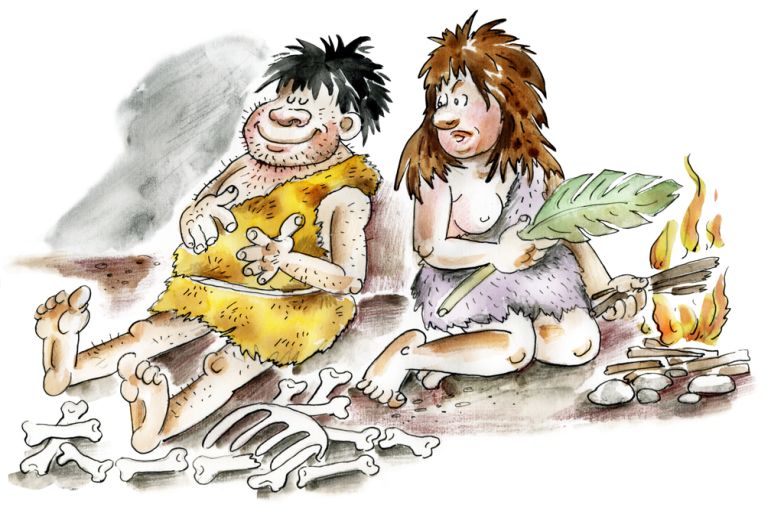When your next door neighbours cause you stress, what do you do? The Neanderthal answer was much more efficient than current action on the subject. Instead of reporting them to the gods, or being impolite on meeting them again, you simply ate the whole family.
Spanish forensic investigations using CSI took place at a 1994 discovery in northern Spain at the deep limestone cave site within El Sidron. Carlos Lalueza-Fox, who works at the Institute of Evolutionary Biology in Barcelona wrote the paper for the Royal Society. Six adults were killed along with their six children, about 49,000 BC. The bones were left about 700ft (213m) from the entrance, mixed with gravel and mud.
The murders took place on a rock shelf above the site, with water carrying the bones down to their current location through a convenient sinkhole “chimney” into the cave. DNA preservation within the rarified atmosphere, without any animal contamination proved a valuable coincidence that provided a family connection for all the bones. Hair colour, blood group and taste perception genes are all gathered in the gene sequencing process that was carried out, telling us an awful lot about these unfortunates.
It’s a whodunit, because the early date precludes modern humans on the European stage. It was fellow Neanderthals who seem to have “dunnit.” The murder weapons which were stone tools came from a very local site, so unless they were killed by their own tools, the neighbours were the culprits. With no fire, the neighbours preferred their human rare, or perhaps they were very hungry, which would give us a motive, too. No meat or bone marrow remained, so the hunger was great, or there were just an awful lot of them.
It’s not the first news of Neanderthal cannibals, so this bad habit may have had a small influence on the eventual demise of the species. It is a possibility that modern humans far-from-glowing record on ethnic relations is still a lot superior to a species who may have readily taken to their own meat. Our own species left Africa and proved resilient to fellow hominids and Ice Ages, as they colonised Eurasia. Their larger group size and a little more friendly social attitude could have been the crucial difference between the two major species of humans.
The Independent have the Carles Lalueza-Fox report to the Royal Society (London) event from Jonathan Leake's Sunday Times article here as Cannibal Neanderthal Gang!.










